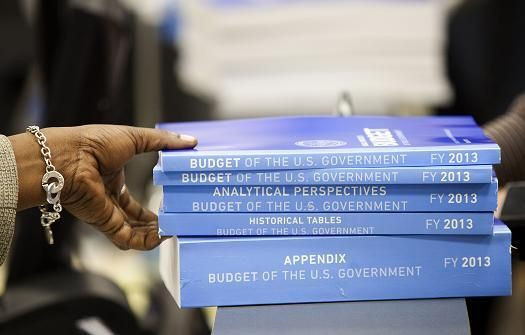House Republican Cole: GOP Should Accept Obama Tax Deal

U.S. Rep. Tom Cole of Oklahoma on Tuesday broke from the Republican fold to urge his party to accept a tax deal that would only extend the Bush-era tax cuts on households earning less than $250,000, the first step toward a compromise he said Republicans need to accept to avoid another lengthy deficit-reduction battle.
“The first thing I’d do is make sure we don’t raise taxes on 98 percent of the American people, “ the senior House Republican told the New York Times on Tuesday night. “We’ll get some credit for that, and it’s the right thing to do.”
Cole reportedly encouraged members of the House Republican whip team -- responsible for tracking votes -- to accept the conditions offered by President Barack Obama and Democrats to avoid the automatic spending cuts and tax increases set to occur in January.
So far, the congressional Republican leadership has objected to a deal that would raise the tax rate on the highest-earning Americans, instead suggesting lawmakers should reform the tax code to eliminate unnecessary deductions and loopholes. The GOP argues that would raise the effective tax rate on the wealthy.
Cole made his statement after senior Democrats, including Senate Majority Leader Harry Reid, said Obama also would not accept a deficit reduction deal that does not include a long-term extension of the debt ceiling. Reid told the Times the president is playing hardball to avoid the partisan showdown that occurred in 2011, when the nation narrowly avoided an unprecedented default that could have had severe economic consequences.
Conservative Republicans have said they want the debt ceiling left out of any deficit reduction package in order to maintain the leverage they say they need to force Washington to trim the federal deficit. Grover Norquist, the president for Americans for Tax Reform, on Wednesday wrote that Republicans should threaten to prevent increases in the debt ceiling if Democrats do not extend the Bush tax rates for the highest earners.
The debt ceiling that Obama’s plans bump into every month or so for the next four years provides plenty of leverage for the GOP to trade for spending cuts — as done in 2011 — or continuing the lower rates, Norquist wrote in an op-ed published in The Hill.
But Cole’s position suggests some Republicans are eager to avoid another partisan brawl, which have proven to be exceedingly unpopular with voters. Following the political gridlock that defined the 2011 debt ceiling crisis, Congress had its lowest approval rating of all time.
"I don’t believe in holding the American people hostage to this debate," Cole said, explaining lawmakers need to make a quick deal that will preserve lower tax rates for 98 percent of households. "Let’s get what we can now, then go back and try to get the rest. Where there is common ground with the president, we should seize that common ground."
House Speaker John Boehner, R-Ohio, has said any increase in the debt ceiling must be accompanied by equal cuts in spending in order to avoid the so-called “fiscal cliff.” Democrats have made clear that they will not accept any cuts to Medicare or Medicaid as part of a deficit reduction agreement. However, Sen. Dick Durbin, D-Ill, has reportedly said suggestions to trim costs of the Affordable Care Act, Obama’s signature health care law, were not off the table.
© Copyright IBTimes 2025. All rights reserved.





















